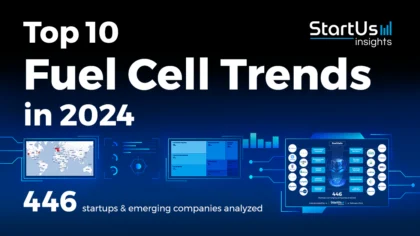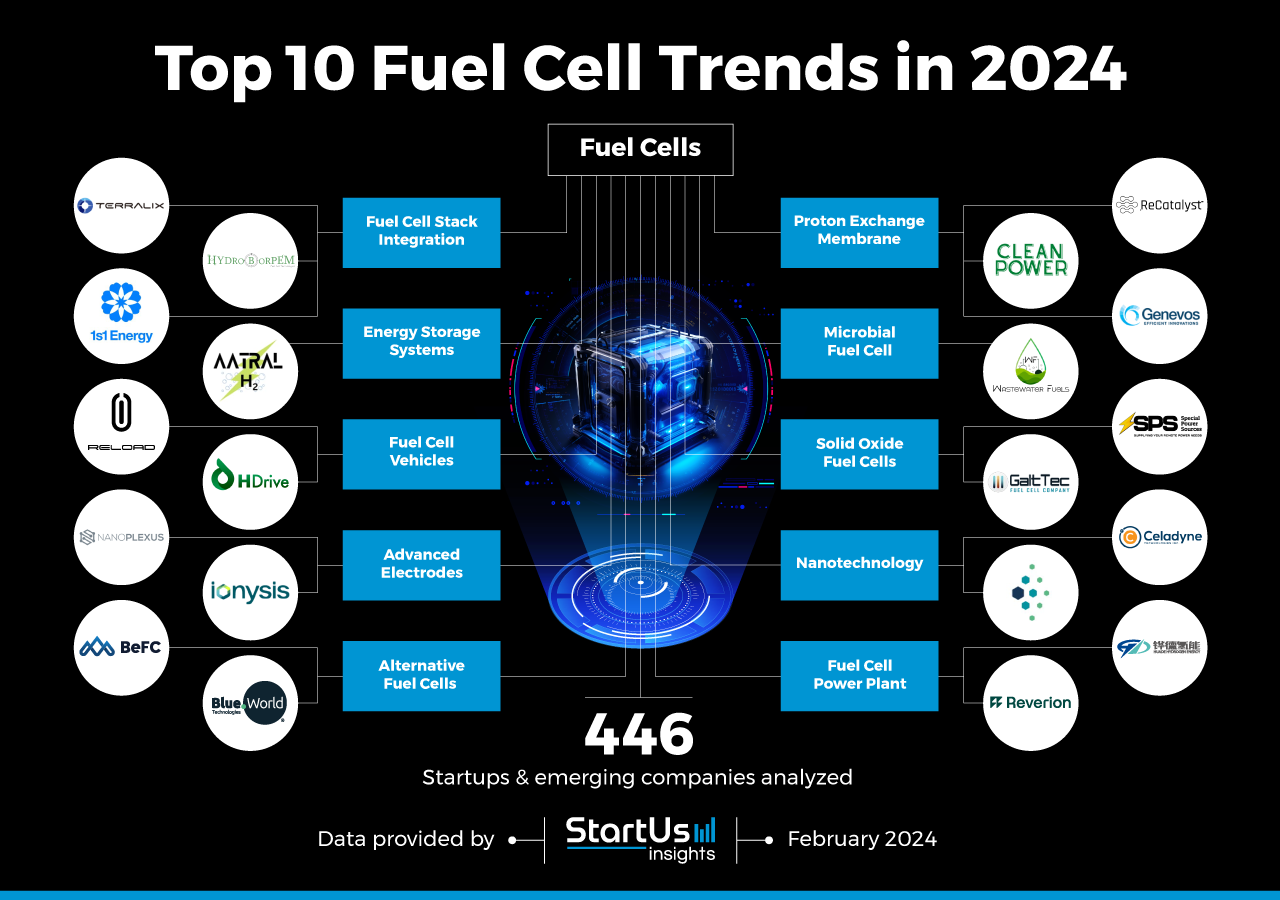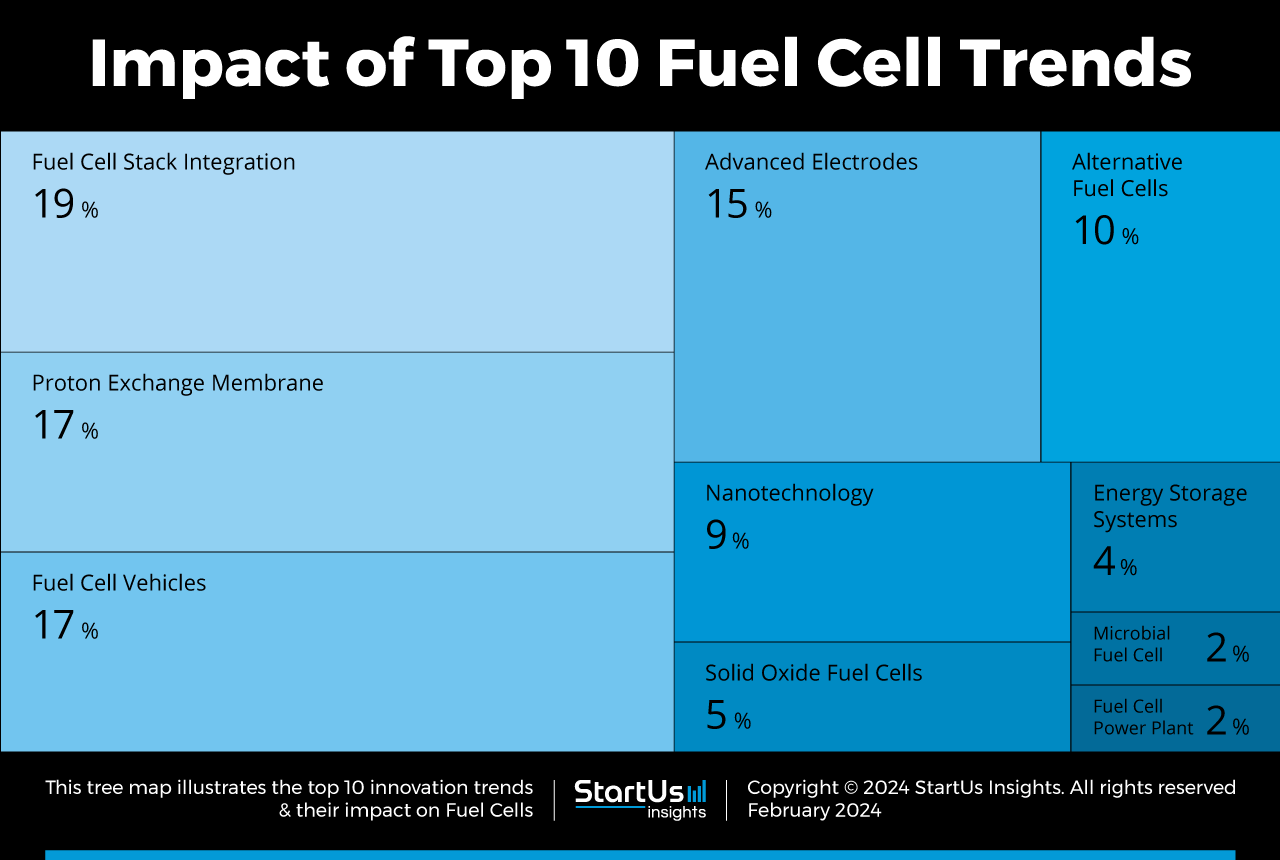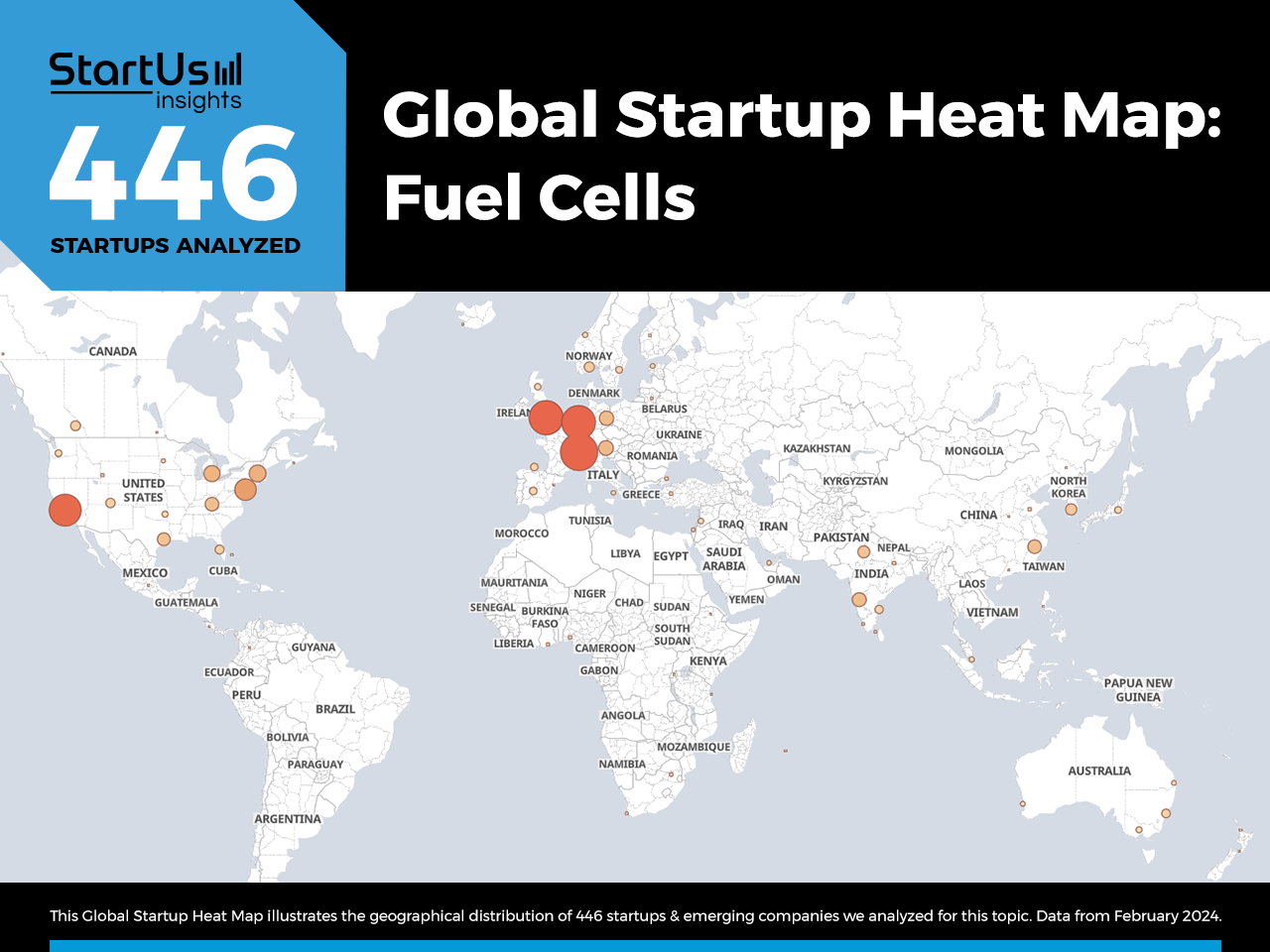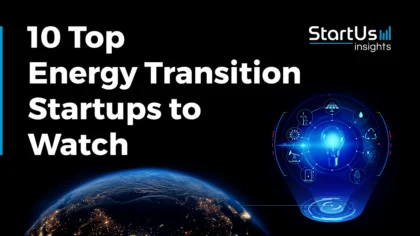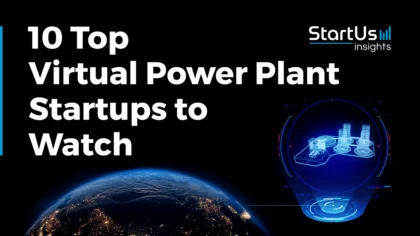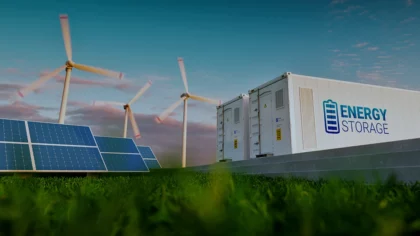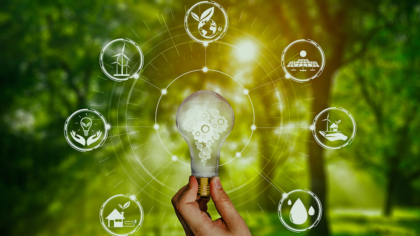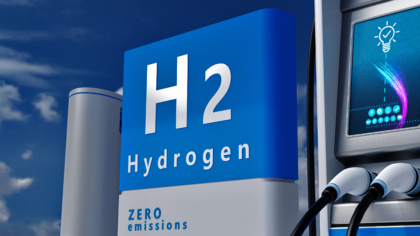Accelerate Productivity in 2025
Reignite Growth Despite the Global Slowdown
Conventional battery-based energy solutions have low efficiency, especially in applications like heavy-duty vehicles, off-grid power sources, and stable power in hospitals or data centers. Emerging companies thus leverage innovations in materials science to create more efficient and durable fuel cell membranes. Along with advances in hydrogen storage and production, novel fuel cell trends are enabling more sustainable and feasible energy storage means.
Top 10 Fuel Cell Trends in 2024
- Fuel Cell Stack Integration
- Proton Exchange Membranes (PEMs)
- Fuel Cell Vehicles
- Advanced Electrodes
- Alternative Fuel Cells
- Nanotechnology
- Solid Oxide Fuel Cells (SOFCs)
- Energy Storage Systems (ESS)
- Microbial Fuel Cells (MFCs)
- Fuel Cell Power Plants
Innovation Map outlines the Top 10 Fuel Cell Trends & 20 Promising Startups
For this in-depth research on the Top Trends in Fuel Cells, we analyzed a sample of 446 global startups & scaleups. This data-driven research provides innovation intelligence that helps you improve strategic decision-making by giving you an overview of emerging technologies in the fuel cell and energy storage industry. In the Fuel Cell Innovation Map, you get a comprehensive overview of the innovation trends & startups that impact your company.
These insights are derived by working with our Big Data & Artificial Intelligence-powered StartUs Insights Discovery Platform, covering 4 760 120+ startups & scaleups globally. As the world’s largest resource for data on emerging companies, the SaaS platform enables you to identify relevant technologies and industry trends quickly & exhaustively.
Tree Map reveals the Impact of the Top Fuel Cell Trends in 2024
Based on the Fuel Cell Innovation Map, the Tree Map below illustrates the impact of the Top 10 Fuel Cell Industry Trends in 2024. Fuel cell stack integration solutions utilize high-performance modules for enhanced efficiency and reduced space. Incorporating proton exchange membranes also increases conductivity and durability. Fuel cell vehicles overcome range anxiety and enable rapid charging through advanced electrodes with nanostructured thin film catalysts, increasing efficiency and lifespan.
Besides, alternative fuel cells, like solid oxide fuel cells (SOFCs), offer high efficiency for stationary applications while flow batteries such as zinc-bromine flow batteries, promote high high-capacity and long-duration energy storage. Additionally, hydrogen-based energy storage systems offer large-scale, clean energy storage options. Nanotechnology research focusing on nanomaterial-based catalysts further improves reaction rates and reduces costs.
Global Startup Heat Map covers 446 Fuel Cell Startups & Scaleups
The Global Startup Heat Map below highlights the global distribution of the 446 exemplary startups & scaleups that we analyzed for this research. Created through the StartUs Insights Discovery Platform, the Heat Map reveals high startup activity in Western Europe and the US.
Below, you get to meet 20 out of these 446 promising startups & scaleups as well as the solutions they develop. These fuel cell startups are hand-picked based on criteria such as founding year, location, funding raised & more. Depending on your specific needs, your top picks might look entirely different.
Interested in exploring all 440+ fuel cell startups & scaleups?
Top 10 Trends in Fuel Cell Technologies (2024)
1. Fuel Cell Stack Integration
The wide-scale adoption and integration of fuel cells are hindered by problems such as the degradation of membrane electrode assemblies (MEAs), a critical component in fuel cells. Therefore, startups are developing more durable MEAs that withstand higher temperatures and chemical degradation to enhance their overall lifespan and efficiency.
Another significant problem is the high cost and scarcity of platinum used as a catalyst. Emerging solutions for this include non-platinum catalysts and nano-engineering techniques that reduce platinum usage without compromising performance. Additionally, thermal management within fuel cell stacks is seeing improvements through advanced materials and innovative cooling designs.
TerraLIX manufactures Metal Separator-based Stacks
South Korean startup TerraLIX specializes in advanced hydrogen fuel cell modules that feature air-cooled and water-cooled systems. Its technology utilizes metal separator plates to ensure high performance and durability in fuel cell stacks. The startup’s HYCUS N3 offers a rated power of 2.5 kW, with an operating temperature of around 55℃, and weighs 1.5 kg.
In contrast, HYCUS N5 delivers a higher rated power of 4.5 kW, maintaining the same operating temperature but with a weight of 2.9 kg. Both models operate efficiently in ambient air cooling conditions, suitable for various mobile power applications.
HydroBorPEM creates Composite Membrane Fuel Cell Stacks
Turkish startup HydroBorPEM produces efficient composite membrane fuel cell stacks for hydrogen fuel cell vehicles. The startup synthesizes composite membranes that exhibit enhanced physical and chemical properties compared to traditional Nafion membranes. The composite membranes feature high-temperature resistance, thermal stability, and proton conductivity.
Moreover, the membranes allow for the use of less expensive catalysts than platinum. Hydroborpem’s technology further addresses the main limitations of current fuel cell membranes, such as economic viability and environmental durability, especially for use in the automotive industry.
1s1 Energy provides PFAS-free Electrolyzer Stacks
1s1 Energy is a US-based startup that offers green hydrogen production through boron-based PFAS-free electrolyzer stacks. The technology focuses on the use of renewable energy to split water, producing hydrogen without carbon dioxide emissions. It also offers longer stack durability of up to nine years and a smaller footprint due to high current density.
The startup’s approach includes the use of proprietary electrochemical materials with in-house manufacturing of components, ensuring control over the supply chain. The startup’s PFAS-free option in electrolyzers offers new environmentally friendly hydrogen production capabilities in the energy sector.
2. Proton Exchange Membranes
PEMs currently face issues like low proton conductivity at high temperatures and reduced performance in low humidity conditions. Novel PEM technologies are addressing these issues by using advanced materials like polybenzimidazole (PBI) doped with phosphoric acid. This approach maintains conductivity even at temperatures above 100°C, expanding the operational range of fuel cells.
Other innovations include the integration of hydrophilic channels within the membrane structure, ensuring adequate water retention and proton transport under varying humidity levels. Further, nanotechnology reinforces the chemical stability of PEMs by embedding nanoparticles within the membrane to reduce degradation from chemical and thermal stresses.
ReCatalyst develops a Platinum Alloy Catalyst
Slovenian startup ReCatalyst advances fuel cell catalyst production, specifically targeting the challenges posed by platinum usage. The startup’s customizable platinum-alloy catalyst optimizes the use of precious metals in fuel cells by employing a nano-tech production process that enhances the performance of PEM fuel cells.
Moreover, ReCatalyst’s integration of advanced nanotechnology into the catalyst production process avoids the bottleneck of using platinum in large-scale production. This innovation finds applications in decarbonizing various industries, particularly in reducing greenhouse gas emissions in transportation by enabling more efficient and cost-effective fuel cells.
Clean Power advances Liquid Catholyte Reduction Kinetics
UK-based startup Clean Power develops hydrogen fuel cells with liquid catholyte reduction kinetics technology that reduces the need for platinum catalysts. This reduction uses a novel fuel cell architecture that minimizes degradation mechanisms common in conventional hydrogen PEM fuel cells.
The system also combines an anode from a PEM fuel cell with a redox flow battery-type cathode that enhances durability. Moreover, Clean Power’s technology results in significant cost savings in comparison to conventional designs. The startup’s liquid catholyte reduction kinetics and PEMs find applications in stationery power, combined heat and power, transportation, and more.
Genevos makes a Fully-Integrated Marine Fuel Cell
Genevos is a French startup that specializes in fully integrated marine fuel cells using PEM technology. Its hydrogen power modules (HPM) offer scalable power solutions from 15 kW to multi-MW, tailored for maritime applications. The modules are compact, lightweight, and low noise and feature corrosion-resistant PEM fuel cell graphite stacks, air filtration and compression systems, and efficient cooling systems.
Besides this, Genevos solutions have high scalability and redundancy, ensuring reliability and compliance with zero-emission regulations. Genevos’ technology operates at low air pressure with high kW power density, providing an efficient and environmentally friendly power solution.
3. Fuel Cell Vehicles
Vehicle manufacturers are moving away from fossil fuels due to stricter emission regulations and rising concerns about global warming. However, the integration of fuel cells into vehicles faces challenges such as limited durability under dynamic operating conditions. Additionally, integrating fuel cell systems into vehicles requires compact and lightweight designs without compromising on power output.
Advances in materials engineering address these by offering components that withstand vibrations and varied temperatures within automotive environments. Innovations in system design are also enabling quicker start-up times through advanced catalysts and improved membrane electrode assemblies. Further, compact fuel cell stack designs optimize space without sacrificing performance.
Reload Motors manufactures PEM-powered Fleet Vehicles
German startup Reload Motors provides hydrogen-powered commercial vans based on proton-exchange membrane fuel cells. The startup’s vehicle design includes smaller batteries to further expand battery life and reduce total ownership costs. Besides, the hydrogen tanks in the vehicles are refillable at standard service stations, ensuring ease of use.
Reload Motors’ vans are designed for last-mile delivery and intercity transport, offering a maximum range of 1000 km and a refueling time of 3 minutes. The startup’s technology promotes fleet electrification and a shift towards more sustainable and efficient transportation solutions.
HDrive International provides Hydrogen Passenger Vehicles
HDrive International is an Australian startup that makes hydrogen vehicles for the commercial, public, and private sectors. The startup offers a diverse range of hydrogen transport options, including buses, trucks, prime movers, and waste collection vehicles with capacities from 30kWh to over 400kWh.
Besides, HDrive International provides green, turquoise, and emerald hydrogen for their vehicles to support a variety of applications, including public transport, freight, and waste management. The startup’s technology thus ensures a cleaner and more sustainable mode of transportation as an alternative to traditional fossil fuel vehicles.
4. Advanced Electrodes
Current electrodes in fuel cells suffer from low catalytic activity and poor durability, which hinder their efficiency and lifespan. Innovations in advanced electrodes are addressing them using non-platinum catalysts and enhancing electrode structure. Startups are developing carbon-based catalysts and transition metal alloys to maintain high catalytic activity at a lower cost than platinum.
Additionally, advances in nanostructuring techniques increase the surface area of electrodes, which improves efficiency and durability. Novel coating techniques further protect the catalyst layer from degradation which extends the life of the electrodes. They enhance performance, reduce costs, and increase the longevity of fuel cells. Advanced electrodes thus make fuel cells more viable for energy storage systems, fuel cell vehicles, power plants, and more.
Nanoplexus develops Nano-catalysts
UK-based startup Nanoplexus specializes in advanced material platforms using graphene and other 2D materials. The startup creates nano-catalysts for hydrogen and oxygen evolution reactions in fuel cells and electrolyzer systems. They enhance the efficiency of catalysts and are produced through scalable electrochemical-colloidal synthesis routes.
Additionally, Nanoplexus reduces structural and composite weight in various applications by improving homogeneity in components. The technology also widens the operating limits of elements with novel material combinations. Nanoplexus’ innovations in nano-catalysts and advanced electrodes have potential applications across multiple industries including aerospace, energy storage, and carbon capture.
Ionysis provides Membrane Electrode Assemblies
German startup Ionysis develops components for zero-emission fuel cells in heavy-duty mobility and electrolyzers for green hydrogen production. Its membrane electrode assembly comprises a large number of different materials and steps to significantly impact and improve performance.
Ionysis also integrates material developments into MEAs, such as polymer membranes and eco-friendly PFAS-free materials. The MEA by Ionysis finds applications in ships, planes, trains, and heavy-duty vehicles, offering a sustainable alternative to traditional fuel sources.
5. Alternative Fuel Cells
The operational temperature range of conventional fuel cells limits their use in extreme environmental conditions. Therefore, businesses are developing alternative fuel cells, such as solid oxide and direct methanol fuel cells (SOFCs and DMFCs). SOFCs operate at high temperatures and find use in a variety of fuels, including natural gas and biogas, reducing the dependency on pure hydrogen.
DMFCs, on the other hand, use methanol. which is easier to store and transport than hydrogen. Besides, innovations in materials allow fuel cell manufacturers to improve the efficiency and durability of alternative fuel cells, even at lower temperatures, making them more suitable for a range of environments. These innovations expand the applications of alternative fuel cells like portable power sources, stationary power generation, and auxiliary power units in transportation.
BeFC offers Biofuel Cells
French startup BeFC creates paper-based biofuel cells as an eco-friendly alternative to traditional batteries. The biofuel cells, made from paper and enzymes are thin, lightweight, flexible, and biodegradable. Moreover, the cells are disposable, recyclable, and economically viable, addressing the environmental concerns of conventional batteries. BeFC’s technology also includes a digital platform.
The startup’s solution integrates various sensor technologies with wireless communication for data readout and a flexible form factor to meet different technical specifications. BeFC’s technology finds applications in Industry 4.0, health, packaging, and agriculture, offering organic and small form factor energy solutions.
Blue World Technologies provides Methanol Fuel Cells
Danish startup Blue World Technologies manufactures methanol fuel cells based on high-temperature PEM technology in combination with methanol-reforming. They stack in 9 kW and 18 kW variants, featuring an integrated evaporator for steam reforming integration, high CO tolerance, efficient cooling, and optimized waste heat utilization.
The fuel cells also significantly reduce NOx, SOx, and particle emissions. Blue World Technologies’ methanol fuel cells find applications in stationary power generation, maritime auxiliary power units, heavy-duty vehicles, and light to medium-duty vehicles.

6. Nanotechnology
Some of the main factors within fuel cells are water management and thermal regulation which impact the overall system performance and response times. Nanotechnology offers solutions to these issues through novel materials and coatings that improve liquid management within the cells. This ensures optimal humidity levels for efficient operation. Nanomaterials evenly distribute water produced during fuel cell operation, preventing flooding and dry spots.
Moreover, nano-engineered materials with higher thermal conductivities enhance heat dissipation, maintaining a stable operating temperature. Nanotechnology-based electrode design further improves the distribution of reactant gasses, increasing the surface area available for reactions. These solutions promote the use of fuel cells in applications like transportation, particularly in electric vehicles, and in portable electronic devices.
Celadyne Technologies creates Embedded Nanomaterials
US-based startup Celadyne Technologies enhances hydrogen fuel cells and electrolyzers using advanced nanomaterials. The startup’s approach involves embedding membranes with nanomaterials that are impermeable to hydrogen gas, extending durability. This technology allows for thinner membranes, improving electrolyzer efficiency and current density.
Higher operating temperatures result in more compact fuel cell devices, making them more manufacturable and easier to integrate. This is especially useful in weight-sensitive applications. Further, the startup’s nanomaterials serve to decarbonize heavy-duty transportation by creating a stable market for hydrogen as a logistical fuel.
Momentum Materials Solutions manufactures Nanoporous Carbon Scaffolds
Canadian startup Momentum Materials Solutions develops nanoporous carbon powder (NCP) for use in proton exchange membrane fuel cells. Its NCP is a durable catalyst support within the MEA to enhance fuel cell performance. The product features high conductivity, high porosity, and low tortuosity with controllable size and a surface that is tunable from hydrophilic to hydrophobic.
Momentum Materials Solutions’ NCP finds applications in various components like PEM fuel cells, membrane electrode assemblies, and catalyst substrates, offering a more sustainable and efficient solution for energy generation and storage.
7. Solid Oxide Fuel Cells
Advancing fuel cell capabilities, solid oxide fuel cells efficiently convert energy from a variety of fuels, including hydrogen and natural gas. SOFCs operate at high temperatures, which facilitates internal reforming processes and enables the use of less pure hydrogen sources. The development of durable ceramic materials and electrode designs also underpins progress in SOFC technology.
These advances make it viable for both stationary power generation and as a potential solution for heavy-duty transport. SOFCs thus provide a path towards reduced carbon emissions and a more sustainable energy future.
Special Power Sources makes SOFC Generator Systems
Special Power Sources is a US-based startup that offers SOFC generator systems for clean and efficient energy generation. They operate on alternative fuels such as ultra-low sulfur diesel, biodiesel, and (jet propulsion) JP-8. The startup’s lineup also includes three models ranging from 150 watts to 1500 watts.
These systems provide continuous operation and ensure a low total cost of ownership. The startup’s systems also serve a diverse range of applications, from remote off-grid communities to private enterprises and military operations.
GaltTec manufactures Modular SOFCs
Estonian startup GaltTec’s Microtubular Solid Oxide Fuel Cells (MT-SOFC) include a modular design that is resilient to thermal and mechanical stresses. Compatible with a range of fuels, from green hydrogen to synthetic fuels, the technology ensures high-efficiency power generation.
Further, the startup’s fuel cells improve power density, reduce material requirements, and boost durability for drones, IoT systems, portable devices, and space equipment.
8. Energy Storage Systems
The integration of fuel cells in remote or mobile applications is limited by the lack of efficient energy storage solutions to handle variable loads and environmental conditions. Therefore, startups are developing energy storage systems to address these issues through advanced battery technologies and hybrid systems. For example, lithium-ion batteries, with their high energy density, are being optimized for better integration with fuel cells, allowing for more efficient energy management under variable load conditions.
Hybrid systems combining fuel cells with supercapacitors also offer rapid response times and high power density for handling peak loads. These systems are particularly effective in smoothing out the power supply from fuel cells. This ensures a consistent output while providing higher safety and energy density, which is important for remote and mobile applications.
Aatral Hydrogen advances Chemical Hydride-based Energy Storage
Aatral Hydrogen is an Indian startup that provides chemical hydride-based energy storage systems. They store hydrogen in the form of metallic hydride. The startup’s approach offers clean, long-duration storage and a safe, cost-effective logistics infrastructure for light hydrogen gas.
Its other products include a solid hydrogen on-demand system and a logistic method for decarbonizing CO2 with renewable energy. Aatral Hydrogen’s technology is suitable for a wide range of energy storage applications ranging from KW to MW capacity units in sectors like automotive, energy harvesting, smart city infrastructure, and more.
9. Microbial Fuel Cells
Microbial fuel cells break down organic waste to generate electricity. They convert a wide range of organic materials, including those found in wastewater, into electrical energy, thereby enhancing the efficiency of waste-to-energy (WTE) conversion.
Innovations in electrode materials and designs within MFCs are improving the interaction between the microorganisms and the electrodes, leading to higher electricity generation. These improvements in MFC technology are making waste treatment more energy-efficient and opening up new applications in bioremediation.
Wastewater Fuels enables Wastewater to Energy Conversion
UK-based startup Wastewater Fuels produces clean energy and water from wastewater using microbial electrolysis technology. The modular and scalable system functions by treating wastewater using the energy it contains, providing excess energy in the form of hydrogen or electricity.
The startup’s process involves friendly microbes colonizing a rod assembly immersed in wastewater, converting organic matter into hydrogen ions, which are then transformed into hydrogen gas. Wastewater’s fuel cell technology promotes a circular economy by functionalizing wastewater as a feedstock for fuel production.
10. Fuel Cell Power Plants
Fuel cell power plants use advanced control and management systems to adjust power distribution based on changing power demands and grid conditions. For this, companies leverage real-time data analytics and predictive algorithms. Further, the incorporation of hybrid systems, combining fuel cells with other renewable energy sources like solar and wind, improves the flexibility and resilience of power grids.
Such hybrid systems balance the intermittent nature of renewable sources and provide a more consistent energy output. Additionally, advances in modular fuel cell designs are enabling scalable and customizable power plant configurations. This allows for tailored solutions to specific energy needs.
Jiangsu HuaDe Hydrogen Energy Technology provides Hydrogen Power Plants
Chinese startup Jiangsu HuaDe Hydrogen Energy Technology specializes in commercial hydrogen power plants utilizing industrial by-product hydrogen for cogeneration. The startup’s CarNeu series of fuel cell systems like the CarNeu-50 and CarNeu-M10, are designed for industrial and commercial use. The systems utilize pure hydrogen to provide a zero-carbon emission power supply.
The CarNeu series features low-voltage, low-temperature PEM stacks with enhanced PEMs and anti-CO poisoning design for stable operation. The systems also integrate with hydrogen recycling units for small-flow hydrogen recycling, optimizing cycle algorithms and improving hydrogen utilization. Moreover, the power plants are suitable for installation near chemical plants or coupled with hydrogen electrolysis systems, reducing hydrogen operational costs and emissions.
Reverion offers Micro Power Plants
Reverion is a German startup that develops micro power plants. They maximize the potential of biogas and utilize excess solar or wind power. The micro power plants replace combustion engines with ultra-efficient, solid oxide fuel cells, which enable the micro power plants to increase the output of existing biogas plants.
This approach achieves significantly higher electrical efficiency while lowering CO2 emissions. Besides, the units, when applied to anaerobic digestion plants, reduce climate impact, even without capturing produced CO2. When capturing CO2, the process becomes carbon-negative, enabling cost-competitive carbon removal from the atmosphere.
Discover all Fuel Cell Trends, Technologies & Startups
Emerging fuel cell innovations focus on lightweight drones, integration of fuel cells in uninterruptible power supplies (UPS), and the development of portable fuel cell generators as a sustainable and quiet alternative to diesel generators. The Fuel Cell Trends & Startups outlined in this report only scratch the surface of trends that we identified during our data-driven innovation & startup scouting process. Identifying new opportunities & emerging technologies to implement into your business goes a long way in gaining a competitive advantage.
